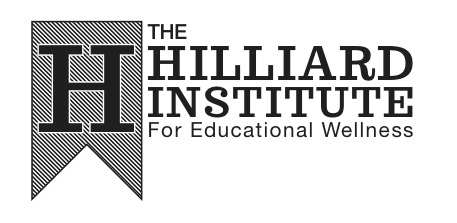The Lecture A Viable Teaching Methodology—Yes or No?
By Dr. K. Mark Hilliard
At one time, the lecture held a place of honor and esteem in academia. Yet today, the lecture has been delegated to the basement, so to speak, in the inventory of viable teaching methodologies—stuffed away in old boxes with our platform shoes and leisure suits. But is that where it belongs, and why has it been so consigned?
The Oxford English Dictionary defines “lecture” as “an educational talk to an audience, especially one of students in a university,” but it also offers the definition of “a lengthy reprimand or warning.” Could it be that somewhere along the line of fine lecturing we somehow digressed from the first definition to definition two, and our “talks” to our students became the psychological equivalent of lengthy reprimands, more so than meaningful dialogue—“educational talks?”
I would hope that we could all say that we have experienced lectures that captured our attention: lecturers who captivated us with their words and experiential expressions. But, I know that we have all, likewise, experienced lectures that had the same negative effect as a reprimand on our intellectual capacity to learn to the extent that we shut out the speaker and transfigured our mind into a state of meaningless contemplation—day dreaming.
As a result of a multiplicity of bad lectures over a period of time, I am afraid we have, in the words of my mother, “thrown out the baby with the bath water.” We have all but eliminated the lecture from our repertoire of teaching and learning styles, and I am concerned that we are raising a generation of students and new teachers who might never experience, or learn how to offer, a quality lecture. This distresses me immensely and is the major reason for this exploration into The Lecture, A Viable Teaching Methodology—Yes or No?
Let’s begin with an analysis of some of the broad, major components of a lecture, actually not of the lecture itself so much as all the elements that surround the lecture:
- the subject matter;
- the interest of the audience in the subject matter;
- the pre-knowledge and experiences of the audience and ability of the audience to comprehend, translate, and apply the information delivered in the lecture (which can relate to age, previous level of training or education, sex, cultural background, preconceived notions about the speaker or the subject matter, and a multitude of other characteristics which affect the ability of the audience to appropriately listen and learn);
- the time of day for the lecture;
- the environment or location of the lecture;
- the speaker;
- the knowledge of the speaker;
- the experiences of the speaker;
- the training of the speaker—on teaching and learning, and on the subject matter; and
- the ability of the speaker to relate to the audience and the audience to relate to the speaker.
1) The Subject Matter
While the subject matter is quite relevant in giving a lecture, I know from experience that a good lecturer can make any subject matter a valued and worthwhile encounter. As speakers, sometimes our topics are assigned—hopefully based on our area of expertise; sometimes we are able to select our topics from a pre-determined list; and sometimes the subject matter is ours for the choosing. At whatever the level of choice the lecturer has, it is important to either select a subject for which you have both knowledge and experience, or to create the time and opportunity to obtain some degree of advanced knowledge and experience before offering the lecture.
I cannot overemphasize the importance of some level of experiential expertise in offering a quality lecture. And while direct experience with the subject matter is incredibility beneficial, experience does not always have to be directly related to the topic, but quite often is simply a by-product of a multiplicity of life experiences that give you the ability to communicate effectively and meaningfully.
What we don’t always understand is that each of our experiences becomes a part of our collective memory and is accessible to our brain to help us express a point, expand on a thought, provide a metaphor, or tell a story (even if these experiences do not directly relate to the subject matter), and these experiential expressions are needed to make our subject matter come alive. In practical terms, the more smells we smell, the more tastes we taste, the more sounds we hear, the more sights we see, and the more shapes and textures we touch, the more our experiences are expanded. And the more experiences, the better our ability to lecture.
By experiencing the smell of a pipe, the speaker is better able to describe smells. By traveling to a foreign county, the speaker is better able to speak on the excitement of travel. By experiencing a variety of emotions, the speaker is better able to express feelings. And by reading an assortment of books, the speaker is better able to express a variety of evocative words. Through our study, research, and active participation in life, we are better able to assemble our words into meaningful dialogue that will connect with the experiences of our audience.
Dr. K. Mark Hilliard speaking at the Oxford Centre World Peace Symposium at Harris Manchester College, University of Oxford, March 2015
This article, in its entirety, appears in the second edition of Educational Wellness.

